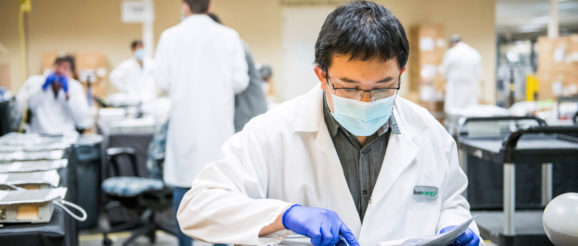Answering the coronavirus: exponential American innovation

America has long led the world in innovation, and the coronavirus won’t change that. Indeed, US inventors and entrepreneurs are rising to the occasion, jumping in to fill urgent needs.
With ramped-up testing the best way to discover who has the virus and so learn what the fatality rate really is, the news from Abbott Laboratories couldn’t be better. The Food and Drug Administration gave emergency-use approval to Abbott’s new test, the fastest available at the point of care: It can deliver a positive result in five minutes and a negative result in under 15.
This test runs on a platform about the size of a small toaster and so can become a feature of small clinics and doctors’ offices, not just hospitals. Abbott expects to deliver 50,000 of these tests a day, starting this week. The FDA has OK’d a point-of-care test from the company Cepheid, too: It can return results in 45 minutes.
Even more promising are serology tests that can find antibodies in a finger-prick of blood — proving that you had COVID-19 even without any symptoms. That will make it easier to track contacts and clear some people to stop isolating. Biomerica has developed one that can deliver results in 10 minutes at a cost of $10; it’s already shipping kits to Europe but needs emergency-use Food and Drug Administration approval for US use. (Get going, FDA.)
The list goes on. Startup BioIntelliSense has developed the BioSticker, a wearable sensor that can measure vital signs — temperature, heart and respiratory rates and coughing — and transmit it to clinicians in near-real time.
Vici, an InTouch Health robot with a camera forehead, tablet chest and keyboard navel, let docs in Washington state communicate with the first US COVID-19 patient in isolation. And Stanford researchers are using the Crispr gene-editing tool to see if they can stop the coronavirus from hijacking human cells.
Other companies are at work to end shortages of vital equipment: The FDA on Sunday approved the nonprofit Battelle’s request to sterilize N95 masks without limit (after the agency at first tried to set a 10,000-a-day limit — why?). Battelle’s seeking approval to sterilize other equipment, such as ventilator parts, as well.
Here in New York, the Northwell hospital group is converting anesthesia machines and BIPAP devices (used for sleep apnea) into ventilators.
With the pandemic’s peak still ahead, take some consolation in the fact that innovators’ responses are expanding exponentially, too.
